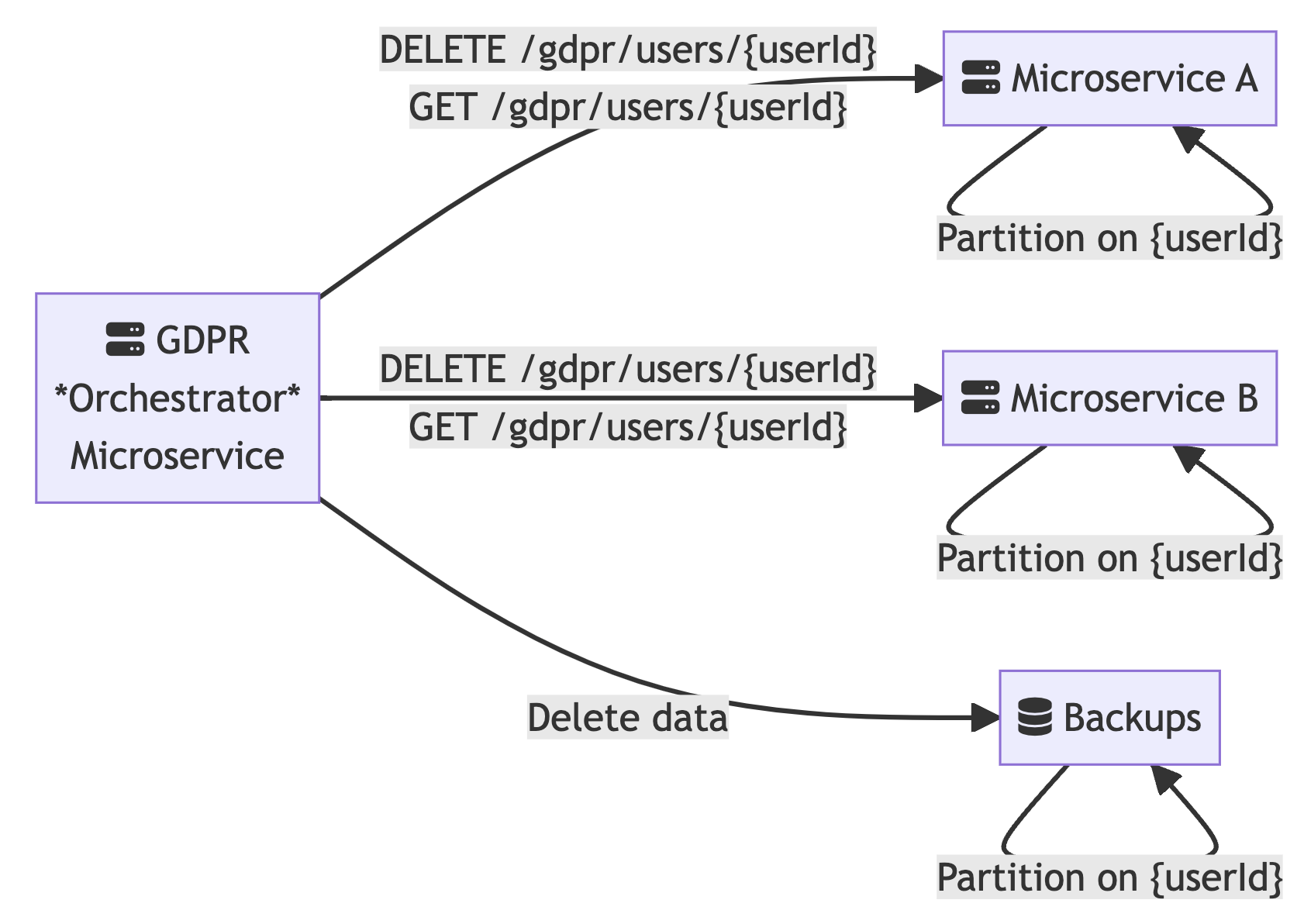· 2 min read
Implementation GDPR - Download and Delete A Users Data in Microservice World
Placeholder

Implementing GDPR-compliant microservices to get all user data and delete a user’s data can seem very hard.
But now I think it’s way too easy to implement.
The approach described below can work at the enterprise level for enterprise apps. Just replace user with enterprise and {userId} with {enterpriseId}

Essentially, we can it in 4 steps.
- Every data record should have
{userId}indexed. Even messaging services like Kafka with a database backup should be indexed. Even storage services like S3 be segregated as{userId}. - Have all microservices have a DELETE
/gdpr/user/{userId}endpoint: This endpoint hard deletes all user’s data - Have all microservices have a GET
/gdpr/user/{userId}endpoint: This endpoint returns all data from a user - Have an orchestrator GDPR microservice: This will call all other microservices for
/gdpr/user/{userId}.
In case of getting data, it will collect all the data, upload it at some location for a certain number of days and notify the user about it.
The exact same interface is needed to hard delete data from backend ups as well.